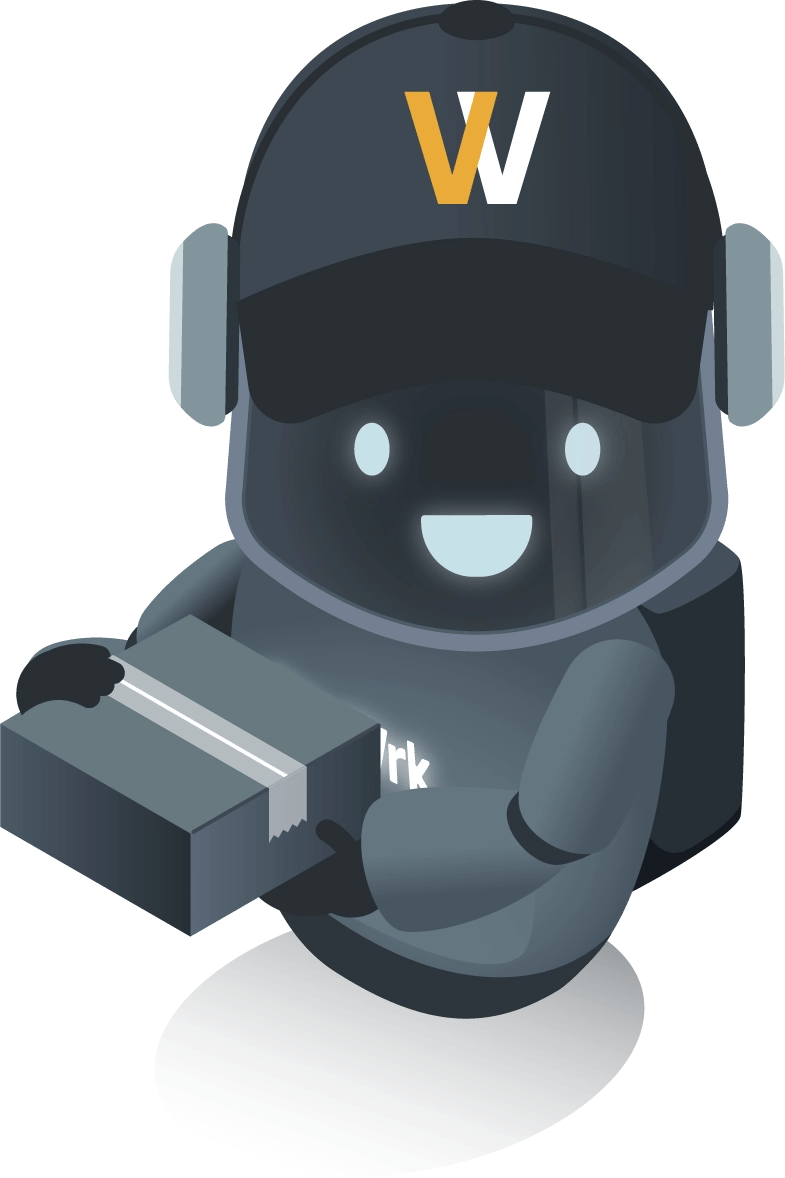How to send IT equipment to Argentina
Looking to send Laptops or other IT equipment to distributed teams in Argentina? GroWrk simplifies IT asset management, shipping, and compliance across borders. Learn how to seamlessly manage logistics, customs, and IT outsourcing for your remote team.

At a glance
Before shipping IT equipment or outsourcing IT services to Argentina, it is essential to understand the country's unique landscape. Argentina is one of South America’s largest economies, offering a robust digital infrastructure and a growing IT industry.
|
CURRENCY Argentine Peso (ARS) |
OFFICIAL LANGUAGE Spanish |
TIME ZONE GMT-3 |
|
CUSTOMS DUTY ON ELECTRONICS 10% + 21% VAT Duties and taxes vary but typically include a 10% import duty and 21% VAT. |
SHIPPING LEAD TIME 7-14 days For standard shipping |
IT OUTSOURCING MARKET $468.11 million US$468.11m in 2025. This growth is expected to continue at an annual growth rate (CAGR 2025-2029) of 10.54%, resulting in a market volume of US$698.79m by 2029. |
Overview of IT operations in Argentina

Expanding IT sector: Argentina’s IT industry is growing at an impressive rate, fueled by high demand for software development and technology services.
Government initiatives: Programs like "Argentina Innovadora 2030" support innovation and investment in technology.
Skilled workforce: A highly educated and bilingual workforce makes Argentina an attractive outsourcing destination.
Cost advantages: Competitive labor costs provide a cost-effective solution for businesses seeking IT services.
Geographic advantage: Argentina’s time zone aligns well with North America and Europe, enabling real-time collaboration.
Shipping IT equipment to Argentina: What you need to know
| Customs regulations |
All IT equipment must comply with Argentina’s customs laws. Items must be declared, and specific documentation is mandatory. |
| Duties and taxes |
According to Argentina's Import Tariffs, customs duties typically include an Import Duty of 10% for electronics when shipping IT equipment to Argentina. Additionally, a 21% VAT applies to most imports. Depending on their nature and declared value, there may also be additional taxes for high-value or used items. |
| Required documentation |
|
| Import restrictions |
Certain high-tech items may require special permits or are prohibited. Also, you may need to provide additional documents for used items. Technology-specific restrictions
|
| New vs. Used equipment |
New electronics: These typically undergo standard customs processing with required documentation such as a commercial invoice, declaration form, and proof of payment. Used electronics: Importing used laptops or other IT equipment requires additional certifications, such as:
|
| Data privacy laws |
|
| Penalties or fines for non-compliance |
|
Checklist for sending laptops to Argentina
When shipping laptops to Argentina, it’s important to follow a few best practices to ensure the process goes smoothly, and your equipment arrives safely and on time. Here are some helpful shipping tips:

Select trusted couriers: Choose reliable couriers such as GroWrk, DHL, UPS, FedEx, or Correo Argentino for international shipping. These carriers offer tracking services and have experience handling Argentinian customs procedures.
Check service levels: Select the appropriate shipping option based on urgency. Express shipping (3-6 days) for high-priority deliveries. Standard shipping (7-14 days) for cost-effective options.
Use high-quality packaging: Secure laptops with sturdy, padded boxes and protective materials like bubble wrap, foam inserts, or air cushions to prevent damage during transit.
Disassemble where possible: If shipping accessories like chargers, docking stations, or monitors, package them separately to prevent damage. Remove detachable components if applicable.
Label clearly: Ensure the recipient’s name, address, and contact details are correctly labeled. Mark the package as "fragile" to encourage careful handling.
Accurate product descriptions: On the commercial invoice, provide a detailed and accurate description of the laptop, including its brand, model, and serial number. Inaccurate descriptions may cause customs delays.
Value declaration: Declare the correct value of the laptop to avoid under- or over-declaring, which could lead to customs inspections or fines. The declared value determines any applicable duties and taxes.
Customs declarations: All international shipments require customs clearance. Include: Argentinian Customs Declaration (Declaración de Importación - DI or SIM for simplified imports), commercial invoice, and packing list
Proof of origin: If applicable, include a certificate of origin to determine eligibility for preferential trade agreements, such as Mercosur agreements, which may reduce import duties.
Understand import duties & taxes: Laptops are subject to 0% import duty under Argentina’s tariff rules but are taxed under the PAIS tax (8%), VAT (21%), and other customs fees based on declared value and shipping costs. The total tax burden on imports can exceed 50% of the declared value, depending on the shipment category.
Pre-pay duties and taxes: Some couriers allow for pre-paid duties and taxes to simplify customs clearance and prevent the recipient from facing unexpected charges upon arrival.
Protect against loss or damage: Consider purchasing shipping insurance for high-value laptops to protect against loss, theft, or damage during transit.
Compliance with Argentinian regulations: Ensure compliance with ENACOM (Ente Nacional de Comunicaciones) regulations if the laptop has wireless communication capabilities. Unregistered devices may be held at customs.
Use tracking tools: Major couriers provide real-time tracking—monitor shipments closely to anticipate customs clearance updates and delivery progress.
Stay in touch with the recipient: Notify the recipient about the expected delivery timeline, tracking updates, and any customs-related requirements to avoid delays.
Expect weather and seasonal delays: Heavy rains, flooding, and high shipping demand during peak seasons (e.g., Christmas, Black Friday, national holidays) may cause delivery delays. Plan shipments accordingly.
Argentinian domestic delivery options: For final delivery, consider working with Correo Argentino, OCA, Andreani, or E-Pick for efficient last-mile distribution.

Average cost of IT Equipment in Argentina
Laptops (Business Grade):
- Mid-range: $700 - $1,500
- High-end: $1,500 - $3,000+
High-end models such as Apple MacBook Pro, Dell XPS, and Lenovo ThinkPad are priced on the higher end.
Monitors (Business Grade):
- Standard: $150 - $300
- Ultrawide/4K: $400 - $1,000
Monitors from trusted brands like Dell, Samsung, and LG typically range within these prices, with 4K or ultrawide models costing more.
Desktops (Business Grade):
- Standard Desktop PC: $500 - $1,500
- Workstation Desktop (for high-performance tasks): $1,500 - $3,500+
Prices depend on the brand and specifications, with options from HP, Lenovo, and Apple among the most common.
Printers (Laser):
- Standard Office Printers: $150 - $400
- High-Volume Printers: $600 - $2,000+
Leading brands such as HP, Canon, and Brother offer a wide range of models for office environments.
Public holidays & IT work hours to plan your shipment
Key public holidays in Argentina:
- New Year's Day (Año Nuevo) – January 1
- Carnival (Carnaval) – February (dates vary)
- National Day (Día de la Revolución de Mayo) – May 25
- Independence Day (Día de la Independencia) – July 9
- Day of Respect for Cultural Diversity (Día del Respeto a la Diversidad Cultural) – October 12
- Christmas Day (Navidad) – December 25
Religious holidays such as Easter (Semana - Santa) and Religious Festivals based on the Catholic calendar also impact work schedules.
Typical work hours for IT professionals
- In Argentina, the standard workweek for IT professionals typically follows a 40-hour schedule, usually from 9:00 AM to 6:00 PM, with a one-hour lunch break. However, in the technology sector, many IT professionals, especially those in roles like software development or project management, may have flexible hours or remote work arrangements. These flexible working hours can help align schedules with global teams or reduce downtime.
What to consider when retrieving IT equipment from employees in Argentina
| Local delivery and logistics services |
|
| Inventory management |
|
| Logistics challenges for remote locations |
|
| Equipment agreement with employees |
|
How to dispose of IT equipment in Argentina
E-waste recycling:
Argentina has specific guidelines for the recycling and disposal of electronic waste. IT equipment such as laptops, monitors, and other electronics must be disposed of through certified e-waste recycling programs. Companies should consult with licensed e-waste disposal providers, such as CEAMSE (Coordinación Ecológica Área Metropolitana Sociedad del Estado), which is responsible for managing and recycling electronic waste across Argentina. E-waste recycling programs ensure that equipment is disposed of in an environmentally friendly manner, preventing pollution and supporting the circular economy.
Data Destruction
Before disposing of or repurposing any IT equipment, it is essential to completely erase all sensitive data in compliance with Argentina's Personal Data Protection Law (PDPL). Businesses should use certified data destruction methods, such as data wiping software or the physical destruction of hard drives, to ensure that no sensitive information is exposed. Compliance with the PDPL is crucial for safeguarding privacy and avoiding potential data breaches.
Repurposing or donating
If the equipment is still functional, businesses can repurpose it internally or donate it to educational institutions, non-profits, or other organizations. Donating used equipment is a sustainable option and benefits communities while contributing to corporate social responsibility. Ensure that all data is erased before repurposing or donating the equipment.

Local IT Outsourcing Solutions in Argentina
You can streamline your IT logistics and asset management with GroWrk’s comprehensive global solution. Whether it’s shipping equipment or managing IT assets across multiple regions, GroWrk helps you stay compliant and efficient, every step of the way. Here’s why GroWrk is the ideal partner for managing your IT assets in Argentina:

| 1. Wide global coverage |
With operations in over 150 countries, including Argentina, GroWrk ensures seamless IT deployment and management for remote teams. Whether your employees are in Buenos Aires, Córdoba, Rosario, or remote locations, we provide timely and hassle-free service to keep your business running smoothly. |
| 2. End-to-end asset management |
GroWrk simplifies the entire IT asset lifecycle, covering procurement, deployment, management, and retirement. By handling logistics, compliance, and security, we allow your team to focus on business growth while we manage IT operations. |
| 3. Intuitive platform for easy deployment |
Our user-friendly platform makes it effortless to order, ship, and track IT equipment across Argentina. Employees receive pre-configured, ready-to-use devices, reducing administrative overhead and ensuring seamless onboarding. |
| 4. Smooth delivery and equipment retrieval |
From delivering laptops, monitors, and IT accessories to remote employees across Argentina to retrieving assets from departing team members, GroWrk handles it all. We make the process efficient and fully traceable, eliminating logistical challenges. |
| 5. Compliance with Argentinian import regulations |
Argentina has strict customs, tax, and compliance requirements for IT shipments. GroWrk ensures AFIP tax compliance, WEEE disposal, and import regulations, preventing delays, penalties, or unexpected costs. |
| 6. Efficient repairs and maintenance |
We manage hardware repairs, replacements, and maintenance to keep IT assets in top working condition. Whether through on-site servicing or remote troubleshooting, GroWrk minimizes downtime and ensures business continuity. |
| 7. 24/7 Support for peace of mind |
From shipping assistance and compliance management to real-time troubleshooting, GroWrk’s 24/7 support ensures smooth IT operations, keeping your remote workforce in Argentina fully equipped. |
Procure, configure, and deploy your IT devices from one platform


